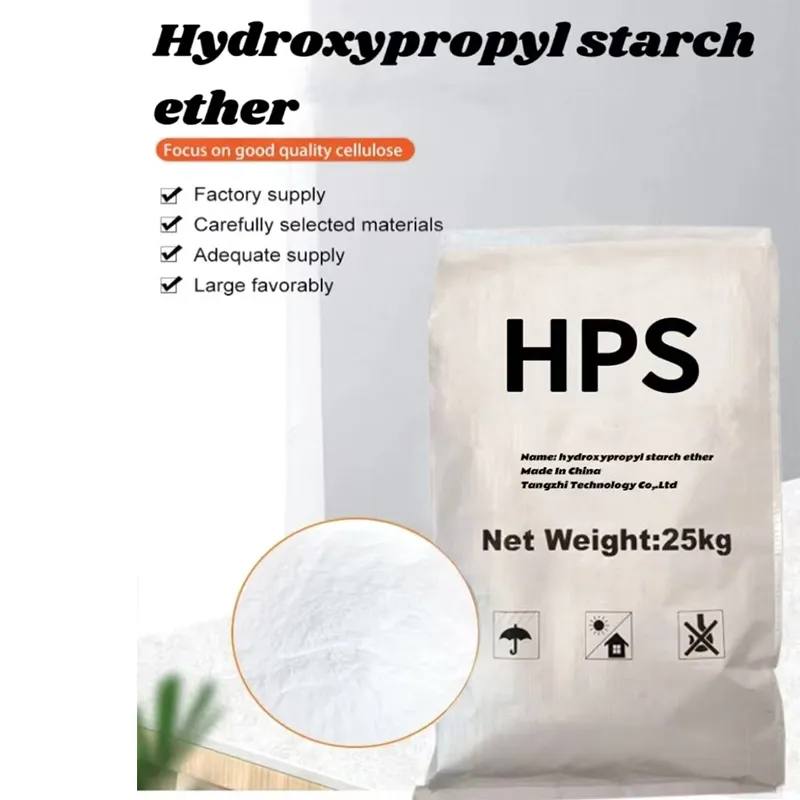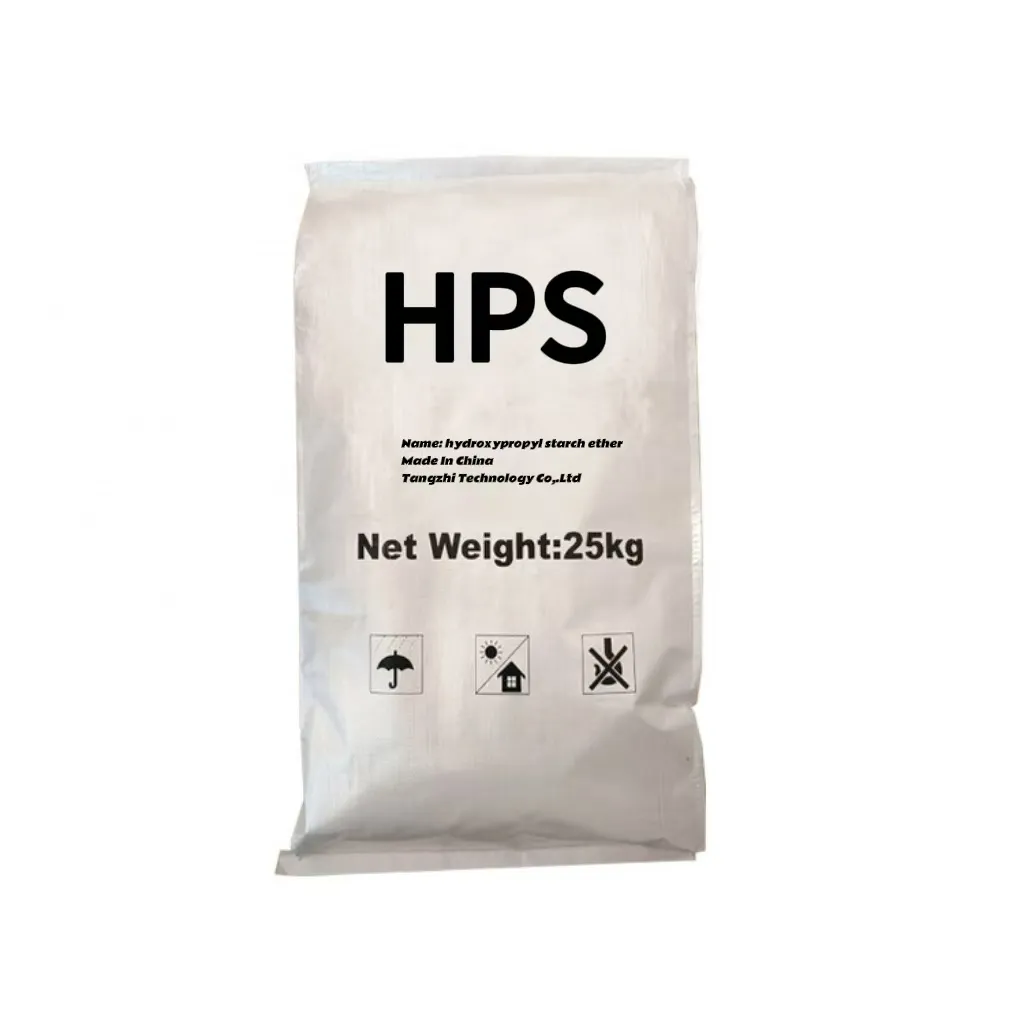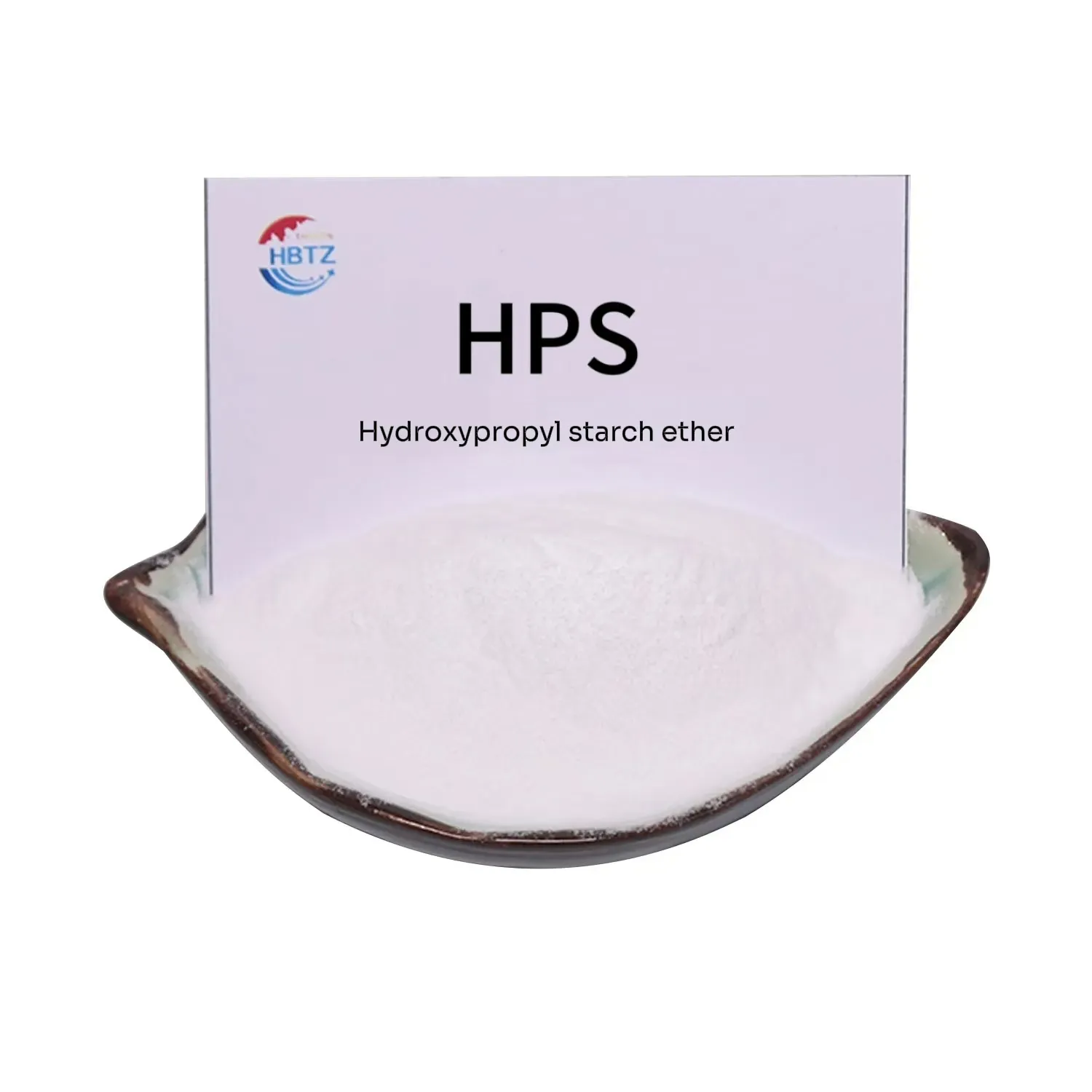
Hydroxy Starch: Superior Thickener & Stabilizer Solutions
Unlocking Performance: The Power of Hydroxypropyl Starch Ether (HPS) in Modern Industries
In the rapidly evolving landscape of construction, food, pharmaceutical, and personal care industries, the demand for high-performance additives that enhance product quality and process efficiency is ever-growing. Among these, hydroxy starch derivatives, particularly Hydroxypropyl Starch ether (HPS), have emerged as indispensable rheology modifiers and thickeners. Unlike traditional thickeners such as hydroxyethyl cellulose, HPS offers unique characteristics including improved workability, superior anti-sagging properties, and enhanced water retention, making it a preferred choice for advanced formulations. Its versatility extends across various applications, from dry-mix mortars and tile adhesives to specific personal care products containing ingredients like hydroxypropyl starch phosphate hair, optimizing performance and stability. The strategic incorporation of HPS ensures products meet stringent industry standards, offering a competitive edge through enhanced performance and cost-effectiveness.
The drive towards sustainable and efficient material solutions continues to fuel innovation in the starch ether market. Industry trends indicate a sustained growth in the adoption of advanced starch derivatives due to their eco-friendly profile and superior functional attributes. With increasing pressure to reduce environmental impact while maintaining high performance, materials like hydroxy starch derivatives provide an excellent balance. They contribute to optimized material usage, reduced waste, and improved final product durability, aligning with global sustainability goals. This forward-looking approach positions HPS as a key component in the development of next-generation building materials, food products, and pharmaceutical formulations, ensuring both environmental responsibility and high-quality output for industrial stakeholders. The rising demand for specialized additives that can enhance specific product characteristics reinforces the vital role of advanced hydroxy starch solutions.
Advanced Manufacturing Process of Hydroxypropyl Starch Ether
The production of Hydroxypropyl Starch ether (HPS) is a sophisticated chemical synthesis process that transforms native starch into a highly functional additive through etherification. This intricate manufacturing procedure typically begins with the careful selection of high-quality natural starch, such as corn or potato starch, which serves as the primary raw material. The starch is then reacted with propylene oxide in an alkaline medium, facilitating the substitution of hydroxyl groups on the anhydroglucose units with hydroxypropyl groups. This precise chemical modification, often conducted under controlled temperature and pressure, is crucial for achieving the desired degree of substitution (DS), a key parameter influencing the final product's performance attributes like viscosity, solubility, and rheological behavior, thereby defining the unique characteristics of each hydroxy starch variant.

Figure 1: Depiction of the complex manufacturing process for hydroxy starch derivatives, ensuring high purity and consistent quality.
Post-etherification, the crude product undergoes rigorous purification steps, including neutralization, washing, and drying, to remove impurities and by-products, ensuring the final HPS product meets stringent purity and quality specifications. Key detection standards and quality control measures are integrated at every stage, encompassing tests for moisture content, pH, viscosity, and microbial limits. This meticulous process ensures that the resulting hydroxy starch ether exhibits excellent stability, consistent performance, and a predictable service life when incorporated into various formulations. Applicable industries benefiting from this refined material include construction (for enhancing mortar workability and anti-sagging), petroleum (as a drilling fluid additive), and food processing (as a thickener or stabilizer), highlighting its adaptability and critical role in diverse industrial applications. The precision of this manufacturing process contributes directly to the superior performance of our hydroxypropyl starch ether.
Technical Parameters and Performance Insights of HPS
The performance of Hydroxypropyl Starch ether (HPS) in various applications is directly dictated by its technical specifications. Understanding these parameters is crucial for formulators to select the optimal grade for their specific needs, ensuring peak product performance. The Degree of Substitution (DS) indicates the average number of hydroxypropyl groups per anhydroglucose unit, profoundly impacting solubility and thermal stability. Viscosity, measured in mPa.s, defines the thickening efficiency and rheological properties, crucial for flow control in liquids or workability in mortars. Moisture content affects shelf life and storage stability, while ash content reflects the purity and efficiency of the washing process.
| Parameter | Standard Range | Impact on Application |
|---|---|---|
| Degree of Substitution (DS) | 0.1 - 0.5 | Influences solubility, thermal stability, and film-forming properties of hydroxy starch. Higher DS leads to better solubility. |
| Viscosity (2% Solution, mPa·s) | 100 - 10000 (Adjustable) | Primary indicator of thickening efficiency and rheological modification, critical for anti-sagging and pumpability. |
| pH Value (2% Solution) | 5.0 - 8.0 | Ensures compatibility with other components in formulations and stability over time. |
| Moisture Content (%) | ≤ 8.0 | Affects product stability, storage conditions, and prevents microbial growth. Lower moisture is generally preferred. |
| Ash Content (%) | ≤ 3.0 | Indicates the purity of the product; lower ash content implies fewer inorganic impurities and better performance. |
| Fineness (mesh) | Typically 80-120 mesh | Influences dispersion speed and solubility in liquid systems, crucial for lump-free mixing. |
The precise control of these parameters during manufacturing is paramount. For instance, in dry-mix mortars, an optimized viscosity of hydroxy starch ensures superior anti-sagging properties for thick-bed applications, while appropriate DS contributes to enhanced water retention, extending open time and improving bond strength. This meticulous attention to technical detail underscores the product's reliability and superior performance in demanding industrial environments, enabling formulators to achieve consistent, high-quality end-products. The robust nature of hydroxypropyl starch ether makes it ideal for a diverse range of high-performance applications.
Diverse Application Scenarios and Technical Advantages
Hydroxypropyl Starch ether (HPS) demonstrates remarkable versatility across a multitude of industrial sectors, owing to its distinct technical advantages. In the construction industry, HPS is a vital component in dry-mix mortars, tile adhesives, renders, and self-leveling compounds. Its primary benefits include significantly improving the workability and plasticity of cementitious mixtures, facilitating easier application and superior finish. Furthermore, HPS enhances sag resistance, preventing material slump on vertical surfaces, and boosts water retention, which extends the open time and improves hydration efficiency, leading to stronger, more durable bonds. These properties are critical for consistent performance in various climates and application conditions, ultimately reducing material waste and labor costs.

Figure 2: Illustrative applications of hydroxypropyl starch ether in various industries, showcasing its broad utility.
Beyond construction, the unique rheological properties of hydroxy starch ethers make them invaluable in other sectors. In the food industry, HPS acts as an effective thickener, stabilizer, and emulsifier in sauces, soups, and dairy products, improving texture and shelf-life. For the pharmaceutical sector, it functions as a binder and disintegrant in tablets, ensuring controlled drug release. Its utility even extends to personal care products, where derivatives like hydroxypropyl starch phosphate hair are used for thickening and conditioning. Compared to alternatives like hydroxyethyl cellulose, HPS often provides superior cost-performance ratios for specific applications, particularly in dry-mix systems, offering immediate thickening and good pseudoplasticity for ease of application. This broad applicability, coupled with its ability to enhance material properties, positions HPS as a highly efficient and economically advantageous additive.
Choosing a Reliable Manufacturer and Customization Solutions
When sourcing Hydroxypropyl Starch ether, selecting a manufacturer with a proven track record in quality, innovation, and customer support is paramount. A reputable supplier should demonstrate robust R&D capabilities, enabling them to continuously refine products and develop new grades of hydroxy starch derivatives that meet evolving industry demands. Comprehensive quality control, adhering to international standards like ISO 9001, is non-negotiable, ensuring consistent product purity, performance, and compliance with relevant regulations. Furthermore, technical support should extend beyond mere product delivery, offering expert guidance on formulation optimization and troubleshooting specific application challenges, thereby building trust with B2B partners.

Figure 3: Quality control and testing facilities for ensuring the superior performance of hydroxypropyl starch ether.
Leading manufacturers understand that one-size-fits-all solutions rarely suffice in complex industrial applications. Therefore, the ability to provide tailored customization solutions for hydroxy starch products is a significant differentiator. This includes adjusting parameters such as viscosity, degree of substitution, and particle size to precisely match the specific requirements of a client's formulation. For instance, a manufacturer might offer a high-viscosity HPS for thick-bed tile adhesives or a low-viscosity variant for self-leveling screeds, ensuring optimal rheology and performance. Such bespoke solutions, backed by extensive service experience and a commitment to collaboration, build trust and deliver substantial value to B2B partners, enabling them to achieve superior end-product characteristics and market competitiveness. This commitment to customized solutions for hydroxypropyl starch ether underscores a truly partner-centric approach.
Compelling Application Cases and Success Stories
The practical impact of Hydroxypropyl Starch ether (HPS) is best illustrated through real-world application cases where it has significantly improved product performance. In a notable project involving a high-rise building construction, the use of HPS in tile adhesives led to a 20% increase in initial bond strength and a 15% reduction in tile slippage on vertical applications, compared to formulations without starch ethers. This improvement in performance directly translated into faster installation times and reduced material wastage, showcasing HPS's efficiency and contribution to overall project economics. The enhanced water retention provided by hydroxy starch ensured consistent hydration of the cement, critical for long-term durability in challenging environmental conditions.
Another compelling example comes from the self-leveling compound market, where a manufacturer sought to achieve a smoother, more uniform finish with faster drying times. By incorporating a specific grade of hydroxypropyl starch ether, they observed a remarkable improvement in flowability and leveling properties, resulting in a perfectly flat surface with minimal defects. This led to a 25% increase in production efficiency and a higher customer satisfaction rate due to the superior aesthetic and functional outcome. These cases underscore the tangible benefits of HPS: not only does it improve the technical characteristics of the end-product, but it also streamlines production processes, delivers measurable economic advantages, and solidifies customer trust through consistent, high-quality results. The broad application scope and proven efficacy of hydroxy starch derivatives continue to drive innovation in various industries.
Frequently Asked Questions (FAQ) about Hydroxypropyl Starch Ether
Q: What is the recommended storage condition for HPS?
A: Hydroxypropyl Starch ether should be stored in a cool, dry place, away from direct sunlight and moisture. It is crucial to keep the bags tightly sealed to prevent moisture absorption, which can affect its physical properties and shelf life. Under optimal conditions, HPS typically has a shelf life of at least 12-24 months from the manufacturing date, ensuring long-term usability of this valuable hydroxy starch product.
Q: Can HPS be used in conjunction with other additives like cellulose ethers (e.g., hydroxyethyl cellulose)?
A: Yes, HPS is highly compatible with most common additives used in construction and other industries, including cellulose ethers like HPMC and hydroxyethyl cellulose. In many formulations, HPS and cellulose ethers are used synergistically to achieve a balanced rheology, water retention, and workability profile. This combination often allows for optimized performance and cost efficiency, making hydroxypropyl starch ether a versatile additive.
Q: Is Hydroxypropyl Starch ether safe for use in food or pharmaceutical applications?
A: Specific food-grade and pharmaceutical-grade versions of hydroxy starch ethers are available, manufactured under strict GMP (Good Manufacturing Practice) conditions and compliant with relevant food safety and pharmaceutical regulations (e.g., FDA, EFSA). It is essential to confirm the grade and certifications with the manufacturer for these sensitive applications to ensure compliance and safety, ensuring the integrity of the end product.
Logistics, Quality Assurance, and Unwavering Customer Support
Ensuring a seamless supply chain is as critical as the product's quality itself. Reputable manufacturers of Hydroxypropyl Starch ether prioritize efficient logistics, offering reliable delivery timelines and flexible shipping options to meet diverse client needs globally. This includes careful packaging to protect the product during transit and adherence to international shipping regulations. Our commitment to quality assurance is unwavering, backed by ISO 9001 certification for our manufacturing processes, guaranteeing that every batch of hydroxy starch meets or exceeds specified technical parameters and purity levels. Each shipment is accompanied by a Certificate of Analysis (CoA), providing transparent data on key product specifications, ensuring complete confidence in our hydroxypropyl starch ether products.
Furthermore, comprehensive customer support forms the cornerstone of a strong B2B partnership. This encompasses pre-sales consultation, technical assistance during product integration, and responsive after-sales service. Our team of technical experts is readily available to provide in-depth guidance on product selection, formulation optimization, and troubleshooting, ensuring that clients fully leverage the benefits of hydroxypropyl starch ether. We stand by our products with clear quality warranties, providing confidence and peace of mind to our partners. This holistic approach, from production to delivery and ongoing support, solidifies our position as a trusted provider of high-quality starch ethers, fostering long-term relationships built on reliability and mutual success.
References and Further Reading
- Guilbot, A., & Mercier, C. (1985). Starch: Chemistry and Technology. Academic Press, Inc.
- O'Brien, J. (2014). Adhesives and Sealants. DEStech Publications, Inc.
- Thakur, V. K., & Singha, A. S. (2012). Polymer-Grafted Starch: Preparation, Properties and Applications. Springer.
- White, P. J., & Johnson, L. A. (2003). Corn: Chemistry and Technology. American Association of Cereal Chemists.
- ASTM International Standards related to rheology and material testing.
-
Reliable Powdered Cellulose Supplier: Quality, Sustainability & InnovationNewsNov.24,2025
-
Find Trusted Microfibrillated Cellulose Suppliers for Sustainable Industrial SolutionsNewsNov.24,2025
-
Leading Methocel Suppliers: Quality, Innovation & Sustainability in Methylcellulose SupplyNewsNov.23,2025
-
Reliable Hydroxyethylcellulose Suppliers for Industry & Sustainability | Tangzhi HPMCNewsNov.23,2025
-
Top Ethyl Cellulose Supplier – Quality, Sustainability, and Industrial SupportNewsNov.23,2025
-
Trusted CMC Powder Suppliers for Food, Pharma & Industrial Use | Tangzhi HPMCNewsNov.22,2025





















